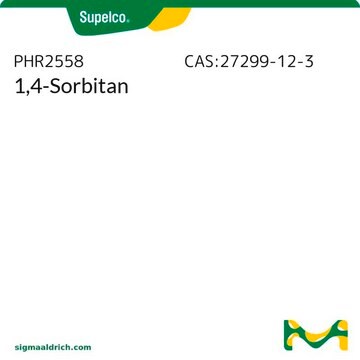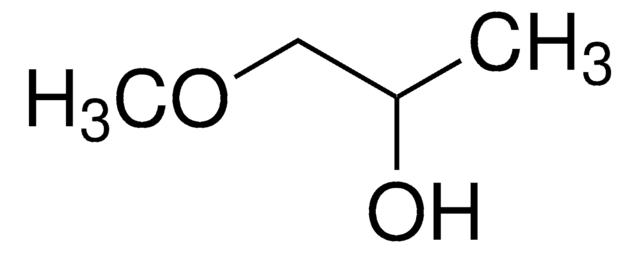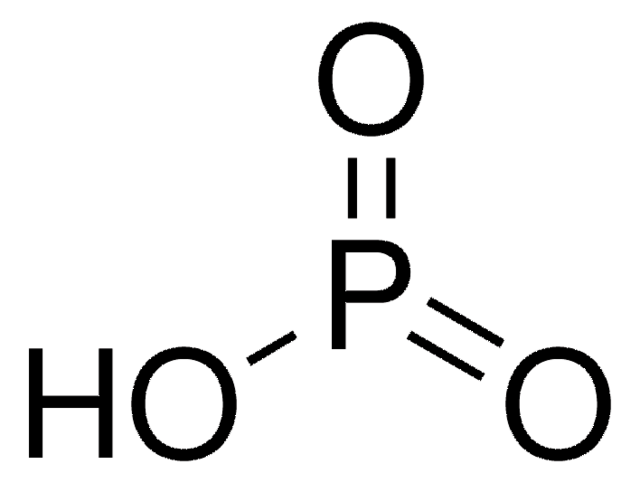PHR1550
2-Ethoxyethanol
Pharmaceutical Secondary Standard; Certified Reference Material
Synonym(s):
2-Ethoxyethanol, Ethyl glycol, Ethylene glycol monoethyl ether
About This Item
Recommended Products
grade
certified reference material
pharmaceutical secondary standard
Quality Level
Agency
traceable to USP 1601543
vapor density
3.1 (vs air)
vapor pressure
3.8 mmHg ( 20 °C)
CofA
current certificate can be downloaded
autoignition temp.
460 °F
expl. lim.
14 %
packaging
ampule of 3x1.2 mL each
technique(s)
HPLC: suitable
gas chromatography (GC): suitable
refractive index
n20/D 1.407 (lit.)
bp
135 °C (lit.)
mp
−90 °C (lit.)
density
0.93 g/mL at 25 °C (lit.)
application(s)
pharmaceutical (small molecule)
format
neat
storage temp.
2-30°C
SMILES string
CCOCCO
InChI
1S/C4H10O2/c1-2-6-4-3-5/h5H,2-4H2,1H3
InChI key
ZNQVEEAIQZEUHB-UHFFFAOYSA-N
Looking for similar products? Visit Product Comparison Guide
General description
Pharmaceutical secondary standards for application in quality control, provide pharma laboratories and manufacturers with a convenient and cost-effective alternative to the preparation of in-house working standards.
Application
Analysis Note
Other Notes
Footnote
Recommended products
Signal Word
Danger
Hazard Statements
Precautionary Statements
Hazard Classifications
Acute Tox. 3 Inhalation - Acute Tox. 4 Oral - Flam. Liq. 3 - Repr. 1B
Storage Class Code
3 - Flammable liquids
WGK
WGK 2
Flash Point(F)
104.0 °F - closed cup
Flash Point(C)
40 °C - closed cup
Choose from one of the most recent versions:
Certificates of Analysis (COA)
It looks like we've run into a problem, but you can still download Certificates of Analysis from our Documents section.
If you need assistance, please contact Customer Support.
Already Own This Product?
Find documentation for the products that you have recently purchased in the Document Library.
Customers Also Viewed
Protocols
GC Analysis of Class 2 Residual Solvents on OVI-G43
Our team of scientists has experience in all areas of research including Life Science, Material Science, Chemical Synthesis, Chromatography, Analytical and many others.
Contact Technical Service













